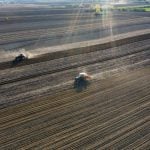A Vancouver company working on a new soy protein product and fine-tuning its processes for a canola protein product plans to fund its work through a $15 million share sale.
Burcon NutraScience priced a prospectus offering on Wednesday for 2.61 million shares at $5.75 each, for expected gross proceeds of just over $15 million.
The company said it’s entered into an agency agreement with a syndicate of agents led by Toronto-based Paradigm Capital and including BMO Capital Markets and Vancouver’s Haywood Securities.
Burcon has also granted the agents an over-allotment option to arrange for the sale of up to another 391,350 common shares, for added gross proceeds of about $2.25 million. The offering is expected to close by about June 18.
Read Also

India slaps 30 per cent import duty on yellow peas
India has imposed a 30 per cent duty on yellow pea imports with a bill of lading date on or after Nov. 1, 2025.
Net proceeds from the deal are expected to be used for continued research and development of Burcon’s soy protein isolate extraction and purification technology, called Clarisoy.
The cash raised will also go toward “further refining” of Burcon’s canola protein isolate extraction and purification processes for the products Puratein and Supertein, as well as filing new patent applications and “expanding (Burcon’s) intellectual property portfolio.”
Burcon has previously said major food, beverage and nutrition companies are evaluating Clarisoy’s possible use in their own products. Burcon has described its soy protein isolate as “100 per cent soluble” and “completely” transparent in acidic solutions, which would make it useful in ready-to-drink beverages ranging down to pH 2.5 and lower.
The company last fall “self-affirmed” that Puratein and Supertein would meet “generally recognized as safe” (GRAS) food safety standards in the U.S., and thus has applied for approval from that country’s Food and Drug Administration (FDA). The company expects to place the two products in the global market for protein ingredients alongside those from egg, dairy and soybeans.











